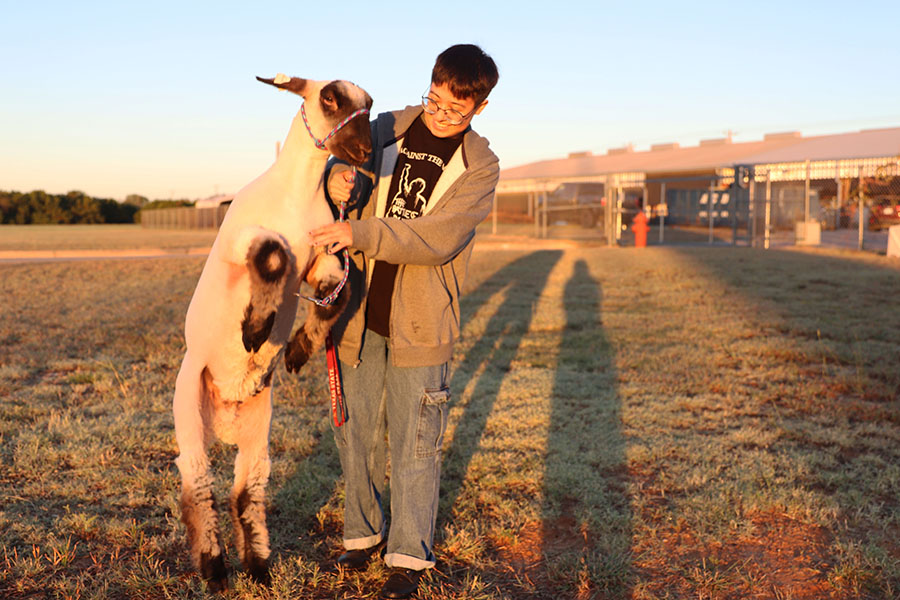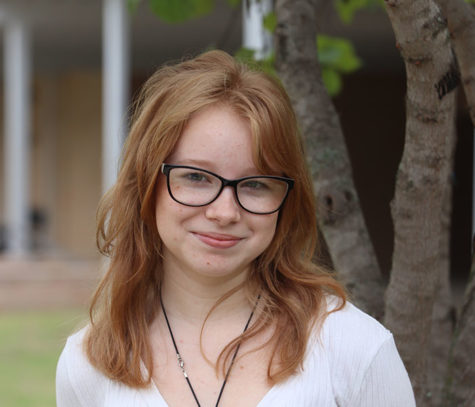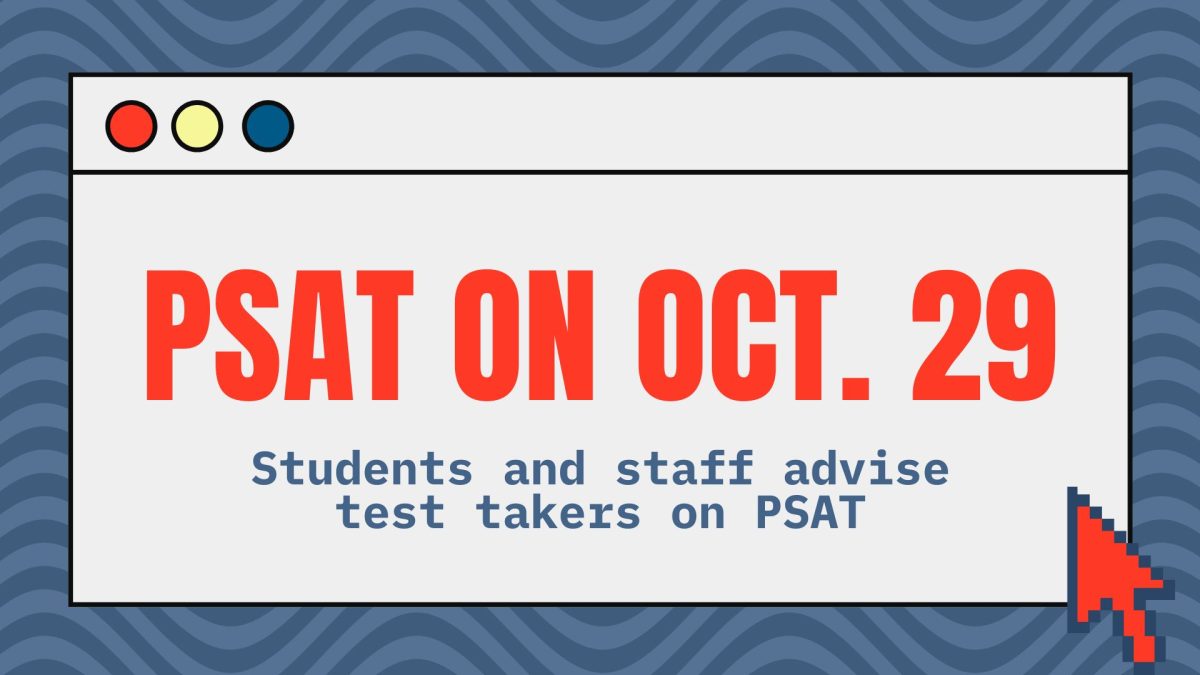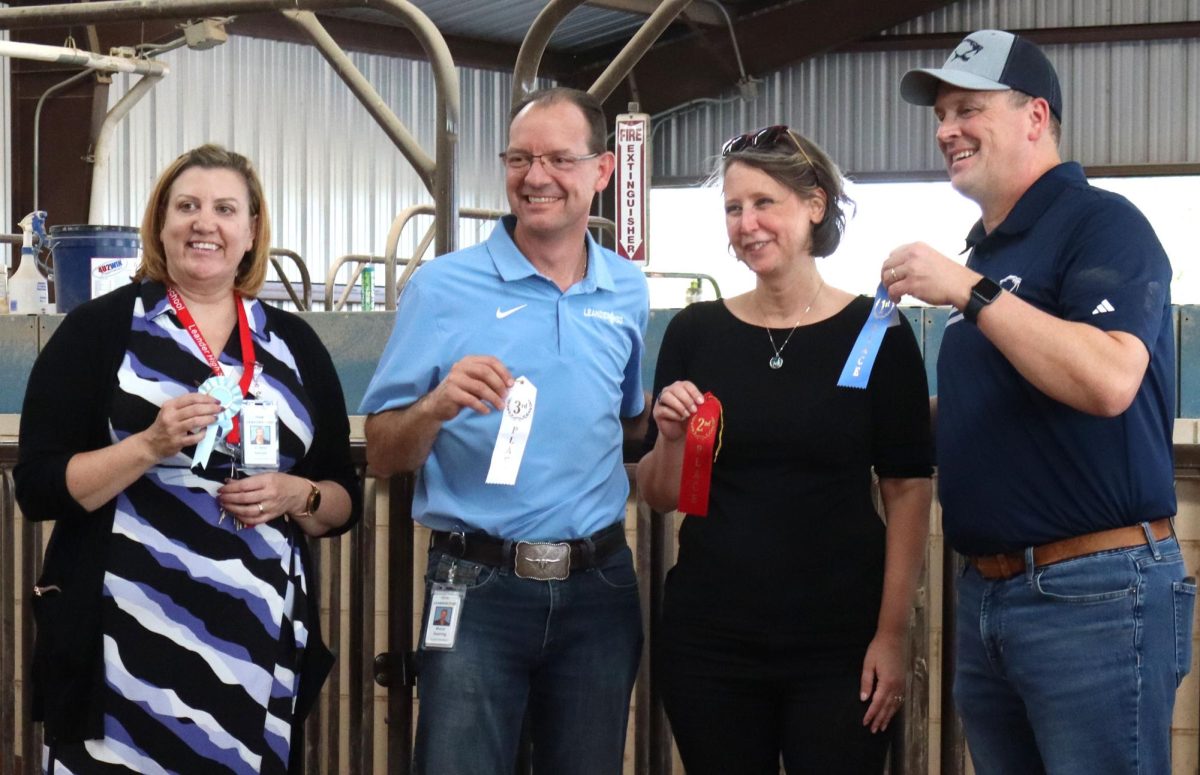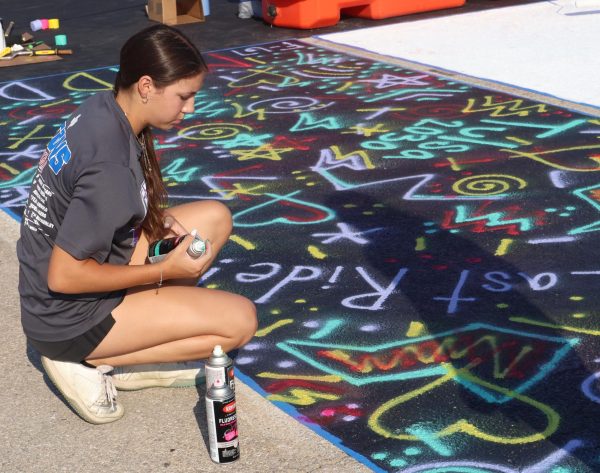Mateo Had A Little Lamb
Senior Mateo Ramos shares his daily life as an FFA student.
On Oct. 26, senior Mateo Ramos, lamb Ritchie stands on his hind legs next to Ramos. Ramos named Ritchie after the singer Ritchie Valens who is depicted in the movie La Bamba.
November 4, 2022
It’s early morning, the birds are still waking up and beginning their songs, and the dew rests on the morning grass. This early in the morning, everyone is still waking up to start their day – except one person. He’s already awake, preparing himself for a hard day’s work in the barn with his beloved lamb.
Senior Mateo Ramos is a first-year FFA student and he’s raising a lamb named Ritchie.
“FFA stands for Future Farmers of America but they changed it a couple of years ago to The National FFA Organization,” Ramos said. “It’s an association that farmers built up to learn more about livestock and agriculture as well as different sciences that started a long time ago.”
Ramos found out about FFA through his agriculture teacher. He went to an FFA meeting to see if he was interested in anything they provided. There he learned about livestock raising, and now he’s taking care of Ritchie.
“I joined because I’ve liked the outdoor aspect of math and science for a long time,” Ramos said. “It’s not like a chemistry or physics class. I had more of an interest in actually being outside and studying the things around me instead of being in a classroom and being taught through lecture. I didn’t know [in FFA] you could be in a greenhouse for a couple of hours and learn about plants. I’ve also grown up with cattle ranchers, my dad and grandpa used to raise cattle. But then they would automatically go to the market. And I wanted to raise [animals], not just see them die. I didn’t know I could do that in FFA, but I found it, so I joined.”
Every day Ramos wakes up at 6 a.m. to take care of Ritchie.
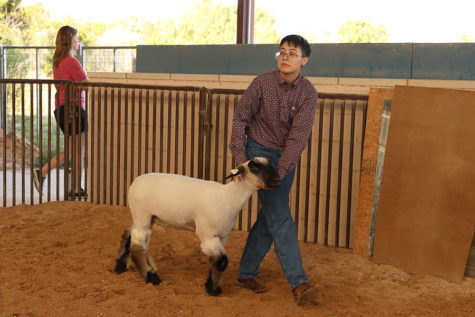
“I walk him first before I feed him,” Ramos said. “That way he knows he has to work for his food. He’s not just supposed to be there, eat and get fat, it needs to be muscle weight. When I feed him, I measure out a pound and a half of food, [which contains] oats and vitamins. I also give him ammonium chloride, which is a chemical that prevents him from getting urine stones. Lastly, I give him a probiotic and a handful of hay, which is like a treat, and then I fill up his water while he eats. After school, I feed him and train him how to walk in an arena. [Which is] so fun because he doesn’t like walking or staying still. [Next] I take care of his coat, and make sure that the only wool left is on his legs. Three times a week I’ll give him a spa treatment. I do a deep conditioning mask and a waterless shampoo, then I brush and blow dry him.”
Before handling Ritchie, Ramos makes sure he takes care of himself first.
“Ritchie’s a lot bigger than me,” Ramos said. “He runs a lot, I can’t take care of him on an empty stomach or if I’m tired because he’s always gonna have energy, he’s always gonna be energetic and he’s always gonna want to interact with somebody because he stays in a pen all day. I have to come physically prepared to take care of him. I change into different clothes and I have to be okay with getting dirty and dusty.”
Ramos said he’s not going to take Ritchie to any terminal shows because he doesn’t want him to go to the market, instead he’ll be giving him to the Austin Farm Sanctuary when the barn closes in January.
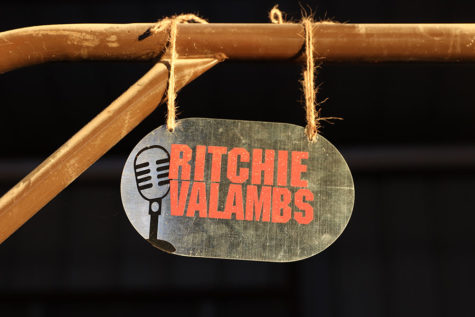
“I did a lot of research and it seems like a nice place,” Ramos said. “The majority of what the barn advocates for is no animal cruelty, and keeping them so they can prosper and live [their life]. So I emailed [The Austin Farm Sanctuary], and I was like, ‘Hey, can you take my sheep?’ and he said yes. Hopefully, by then I’ll have a way to transport him and he’ll live over there where I can visit him.”
Ramos hopes to go to ACC and then transfer to A&M to go into agriculture, marine biology or veterinarian medicine to continue working with animals in his future because he said his favorite part in FFA is the relationships he builds with the animals.
“It’s different,” Ramos said. “He’s not like a dog or a cat, he’s very vocal. Like yes, dogs bark, but Richie has a weird tone of baa-ing and it’s so weird. When he gets energetic or when he’s really happy he hops like a bunny. It’s the cutest thing ever. My favorite thing is knowing that I see him twice a day. You know what I mean? Like, it’s the most stable relationship that I’ve had.”
Ramos said that the biggest thing he’s learned is the earlier he wakes up the more he gets done.
“I hate waking up early. But ever since I’ve started waking up early. I’ve noticed that it makes me more productive. It helps and reassures me that there are more hours in the day than just nine to midnight. I’ve learned that if you want a good end result, you really do have to work for it. And it’s a lot of physical labor too. So it’s not just mentality-wise, like when you want to study for something, and then you don’t and then you realize you have a bad test but this is physical. If I want it to end up good, I have to physically be there. Nobody else is gonna do it for me. I’ve [learned] to rely on myself and self-discipline a lot more.”


